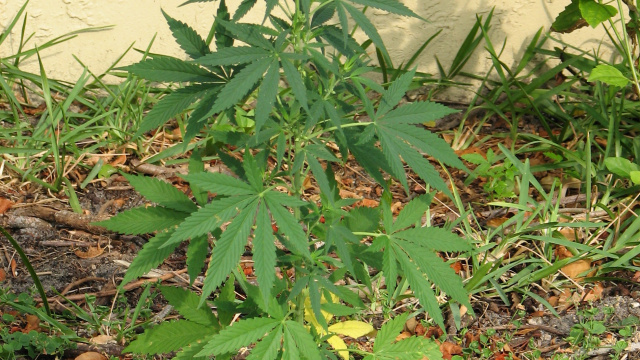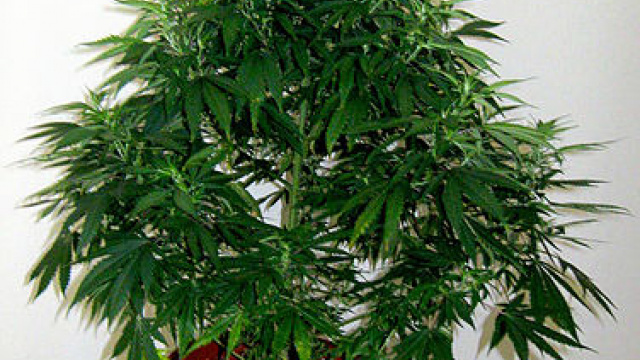 WRONG-ON-WEED CONSERVATIVES DON’T GET IT: CANADIANS WANT DRUG LAWS BASED
WRONG-ON-WEED CONSERVATIVES DON’T GET IT: CANADIANS WANT DRUG LAWS BASED
ON FACTS
On a late July cross-Canada tour, new Liberal leader Justin Trudeau made headlines when he declared the time had come to legalize marijuana. “Listen, marijuana is not a health food supplement; it’s not great for you,” Trudeau told reporters on July 25. “But I did a lot of listening, a lot of reading, and a lot of paying attention to the very serious studies that have come out. And I realize that going the road of legalization is actually a responsible thing to look at and to do.”
The Harper Conservatives quickly attacked, stating in a press release that “drugs are illegal because of the harmful effect they have on users and society. We will continue protecting the interests of families across the country.”
To bolster their “tough on crime” position the Cons quoted several law enforcement officials on the harmful effects of cannabis. Other critics chimed in too. But plenty of people voiced support for Trudeau’s stance. And pundits were divided on the political repercussions of the move.
At first glance, legalization does seem to go against the “law and order” tenor of our times. In the Conservative press release, former RCMP assistant commissioner Fraser Macrae said “Cannabis is a currency for organized crime.” It doesn’t get much scarier than that, and a sizeable chunk of credulous Con supporters will likely go to their graves believing the propaganda they’ve been fed that marijuana is an evil on par with heroin, crack cocaine and crystal meth.
But in broader society, attitudes are changing.
Driven by the recognition that it’s marijuana’s very status as a black-market drug that permits it, like alcohol was in the 1920s, to be a cash cow for gangsters, people are increasingly persuaded that the “War on Drugs” as it relates to marijuana has been an abysmal failure. Even from a health perspective, research is showing that cannabis, far from being a lung cancer-inducing, brain cell-destroying menace, actually yields many benefits, including relief from stress, pain, nausea and anxiety.
As word spreads, and the number of Canadians with first-hand knowledge of pot grows from generation to generation, the electoral tide is shifting. In one 2012 poll, 57 per cent of Canadians supported legalization and 66 per cent said they expected it to happen in the next 10 years. In last November’s U.S. elections, Washington State and Colorado voted to legalize pot, and a group called Sensible BC is currently undertaking a petition drive to force a similar vote in B.C. in 2014.
With momentum growing to legalize pot, Trudeau’s position arguably could be a vote-getter in the 2015 federal election.
Not that the Liberals are the only party open to marijuana reform.
“The NDP’s position has been consistent since the early ’70s when the LeDain Commission suggested that Canada should move to decriminalize marijuana,” says Regina defence lawyer Noah Evanchuk, who ran for the NDP in the 2011 election. “Since the time of Tommy Douglas and David Lewis that’s a position the NDP has supported.”
Under s. 91 of the Constitution, the federal government has jurisdiction over criminal matters. Were the feds to decriminalize marijuana, says Evanchuk, it would enter a grey area constitutionally. The federal government and the provinces would have to work together to set up a regulatory framework.
“What the NDP is saying is we need to bring in medical professionals, members of the bar from the crown and defence, peace officers, mental health officials, to ensure that we do things in a prudent way as was done with other mind-altering substances like [alcohol and cigarettes],” says Evanchuk.
If that thought’s abhorrent to you, keep in mind that a regulatory framework already exists for marijuana that, if you jump through the proper hurdles, permits you to both grow and consume it.
“I always have to remind people that marijuana already is legal in Canada,” says Tim Selenski, a long-time Regina advocate for medicinal marijuana who runs a head shop and online dispensary. “I’ve been growing for over 10 years with a licence that allows me to do so. So when cops pull me over with cannabis, which has been several times, I don’t get arrested. But you need a licence.”
Under current Saskatchewan College of Physicians & Surgeons guidelines, doctors are required to meet stringent requirements like trying three alternative treatments ( often including addictive opiates ) before signing a patient’s application to Health Canada to legally obtain cannabis.
For many, the hassle isn’t worth it. But Selenski has recruited over 60 doctors who believe in marijuana’s therapeutic benefits. So that hurdle’s been largely overcome. And the feds are about to introduce new regulations that will make it even easier for doctors to prescribe cannabis.
“There’ll be no more arbitrary Health Canada forms,” says Selenski. “It’ll be pretty much like writing a [normal prescription].”
Within the next five years, Selenski estimates 300,000 Canadians will be legally licensed to possess pot. Regulations on the supply side are also changing. Concerned that individual growers were abusing the terms of their licence and over-producing for the black market, the feds are moving to a system of large-scale operators.
“They’re opening the door to big farmers,” says Selenski. “I’m applying for one of the commercial contracts. We have a $3.5 million building that we’re trying to light up.”
So with pot essentially legal anyway, why bother going through the formality of legalizing it? Well, the unfortunate reality is that when people are arrested and convicted for pot possession it still screws up your life.
“A criminal record of any kind carries with it severe repercussions,” says Evanchuk. “It’s one of the last safe forms of discrimination for which human rights legislation doesn’t apply, whether it’s trying to travel, particularly to the U.S., or applying for a job where you’re bondable, or a job with the civil service. So a criminal conviction, especially for a drug-related offence, sticks with you.”
Spurred by the passage of the Safe Streets & Communities Act in 2009, arrests for pot possession have jumped 41 per cent since 2006. In a June article titled “Why It’s Time To Legalize Marijuana”, Maclean’s reported that in 2011, 69 per cent of all drug charges were tied to pot.
That’s 78,000 in total for possession, cultivation and trafficking.
Arrest rates vary, too, from community to community, depending on police policy. In Vancouver, for instance, it was 30 per 100,000 people in 2011, while in Tofino it was 588.
That’s not the only inequity, says Evanchuk.
“There’s also a disparity in the type of prosecution based on ethnic status for First Nations people and socio-economic status. So if you’re lower income you’re more likely to be prosecuted and receive a criminal record. And although it’s not common, people in Saskatchewan do receive jail sentences for simple possession.”
In 2003, the Chretien government introduced a bill to decriminalize marijuana possession. Ten years later, the debate rages on.
But the direction society is moving is clear, says Selenski.
“We have cannabinoids in our body. The same thing that marijuana produces, we produce in our bodies. So for them to ban it because of these intoxicants, well=C2=85 you might as well ban people. It doesn’t ma ke any friggin’ sense. And I think people are finally starting to realize this.”
Source: Planet S (CN SN)
Copyright: 2013 Hullabaloo Publishing Ltd.
Contact: [email protected]
Website: http://www.planetsmag.com/
Author: Gregory Beatty



Leave a Reply